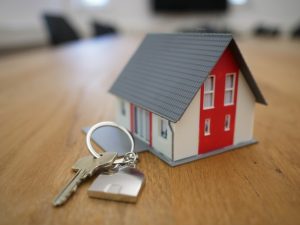After retirement without a regular income, financial problems can sometimes arise. If you are a homeowner, a reverse mortgage is an option that can help you overcome your financial challenges.
What is a reverse mortgage?
A reverse mortgage is a mortgage loan that allows homeowners aged 62 and over to withdraw some of the value of their home and convert it to cash. You don’t have to pay income tax or make monthly mortgage payments.
How people use reverse mortgages
You can use the reverse mortgage product at your leisure. They are often used for expenses such as:
- Debt consolidation
- Living expenses
- handyman
- Help the kids in college.
- Buy another home that better meets your needs as you age
How do reverse mortgages work?
A reverse mortgage is the opposite of a traditional home loan. Instead of paying the lender a monthly payment every month, the lender pays you. You will still have to pay property taxes, home insurance, and other related costs, otherwise, there is a risk of foreclosure.
The amount you get for a reverse mortgage is based on a sliding life expectancy scale. The older you are, the more real estate you can raise.
Two types of reverse mortgages
The Federal Housing Administration insures two types of reverse mortgages: variable rate and fixed rate.
Fixed-rate reverse mortgages consist of a fixed rate.
2. Adjustable have five payment options:
Term of office: define the monthly payments as long as you or your spouse stay at home
Duration: set monthly payments for a fixed period
Line of credit: unspecified payments if you need them until you run out of money
Modified term: a line of credit and monthly payments that are set while you or your authorized spouse lives at home
Modified term: a line of credit and monthly payments for a fixed period of your choice
Am I eligible for a reverse mortgage?
To apply for a reverse mortgage, you must meet the following FHA requirements:
- Are 62 years of age or older
- You and/or an authorized spouse, who must be named as such in the loan, even if he is not a co-borrower, live in your home as their main residence
- Has no federal criminal debt
- You own your home directly or have a significant amount of equity
You will attend the mandatory consultation session with a Housing Conversion Mortgage Advisor (HECM) approved by the Department of Housing and Urban Development.
Your home meets all FHA property standards and flooding requirements
You will continue to pay all property taxes, home insurance, and other home maintenance costs while living at home.
What else do you need to know?
Before issuing a reverse mortgage, a lender checks your creditworthiness, your monthly income against your monthly financial commitments, and orders an appraisal of your home.
The Financial Consumer Protection Agency recommends that you wait until you are older to get a reverse mortgage so you don’t run out of money for retirement too soon.
Almost all reverse mortgages are issued in the form of capital conversion mortgages (HECM), which are insured by the Federal Housing Administration. HECMs have strict credit guidelines and a credit limit.
If you think a reverse mortgage is right for you, contact a HECM advisor or call toll-free 800-569-4287 for more information on this financing option. If you choose a reverse mortgage, you can contact an FHA approved lender.



